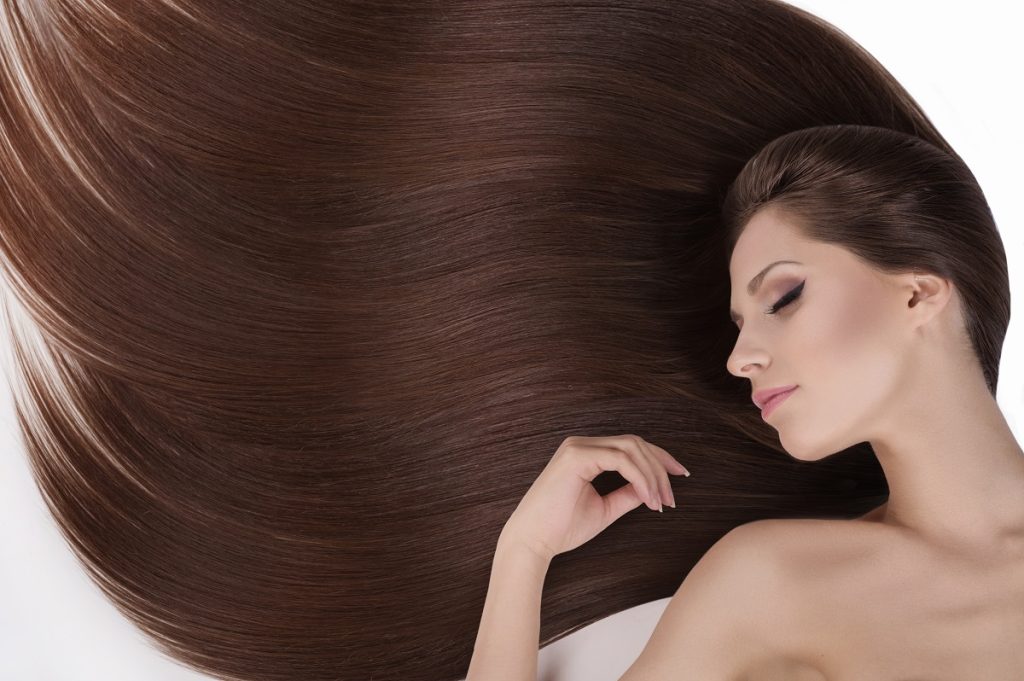- Consult a professional to receive personalized advice on scalp health.
- Make adjustments to your hair care routine, such as eating a nutritious diet and reducing stress levels.
- Utilize appropriate products and hairstyles that fit certain texture types and scalp conditions.
- Consider treatments such as deep conditioning, natural oils, laser therapy, or PRP injections to stimulate hair growth.
Hair is integral to a woman’s identity and can significantly influence her self-confidence. Studies have found that hair plays a significant role in how women view themselves and their lives. According to the American Academy of Dermatology, 85% of women feel that their hair dramatically affects their overall appearance, with 59% believing it determines how attractive others perceive them. Additionally, research has shown that when a woman feels good about her hair, she’s more likely to exude a greater sense of confidence and self-esteem.
Good hair care habits help maintain healthy locks and go a long way towards creating positive impressions, making it essential for women to pay attention to their hair health. Unfortunately, nearly half (47%) of all women report having a scalp condition such as dandruff or itching at least once in the past year. To make matters worse, only 22% of these women sought medical advice for those conditions.
Women must understand the cause of their hair issues and take appropriate action to address them. Here are a few ways to identify and address the most common hair problems:
Consult a Professional
Learning about your hair and taking the necessary steps to maintain it cannot be overstated. Hair is an integral part of a woman’s identity, and how she feels about her hair can profoundly impact her self-confidence. As such, it is essential for women to stay informed about their hair health and to consult with a professional when necessary.
A certified hair care specialist can provide invaluable insight into the causes of common problems and help develop customized solutions tailored to individual needs. They can also identify underlying issues contributing to poor hair health, such as nutrient deficiencies or hormonal imbalances. Furthermore, they can offer advice on lifestyle modifications like dietary changes or stress management techniques, which can help improve one’s scalp health.
Hair care specialists are also well-equipped to advise on proper hairstyling techniques and product selection to help women achieve the look that best suits them without compromising their hair health. For instance, they can recommend styling tools and products that fit certain texture types and specific scalp conditions. Furthermore, they can advise using natural treatments or non-invasive procedures that could enhance hair growth or reduce shedding over time.
Make Adjustments to Your Routine

Good hair care is essential to maintain healthy locks and help create positive impressions. Adjusting your routine and adopting habits that promote scalp health is necessary to achieve this. This includes following a nutritious diet, reducing stress levels, using the right products for your scalp type, and understanding which hairstyles best suit you. Making these adjustments can go a long way towards improving your hair health and preventing scalp problems from occurring in the first place.
Eating a Healthy Diet
What you eat can have an impact on the health of your hair as well as your overall well-being. Incorporating foods rich in vitamins A, B6, and C into your daily diet can help nourish the scalp from the inside out, giving it the essential nutrients it needs for optimal growth. Additionally, incorporating more proteins into your diet can assist with hair growth as protein provides amino acids, essential building blocks for healthy locks. Foods rich in Omega-3 fatty acids, such as fatty fish and walnuts, are also beneficial in helping reduce scalp inflammation and improve blood circulation at the follicle level.
Reducing Stress Levels
Stress is one of the leading causes of hair loss in women due to its adverse effects on physical and mental health. When feeling overwhelmed or anxious, cortisol levels rise, disrupting other vital hormones, such as testosterone or thyroid hormone, which regulate our hair’s growth cycle. Therefore it is essential to find ways to manage stress levels, including relaxation techniques like yoga or meditation or even therapy if needed to restore hormonal balance and improve overall hair health over time.
Using Appropriate Products & Hairstyles
Choosing products that work with your specific scalp type can be an invaluable step toward maintaining healthy locks. For instance, shampoos with sulfate-free moisturizing ingredients rather than harsh cleansers should be used on dry scalps, while those with oily scalps will benefit more from anti-dandruff products. Additionally, certain hairstyles can also have a significant impact on hair health. Tight styles such as braids or buns should be avoided as they can put too much tension on the follicles and pull out strands of hair over time. Nonetheless, with careful product selection and appropriate styling habits, women can maintain healthy locks that reflect their overall well-being.
Softening Water at Home
Unfortunately, your home water might harm your hair more than good. Hard water contains high levels of minerals like calcium and magnesium, which can leave a residue on the scalp that causes itchy skin, dandruff, and hair damage. Investing in a water-softening system is essential to reduce these harmful effects and ensure your hair gets the hydration level it needs. This will significantly reduce the risk of scalp damage and promote healthier locks over time.
Consider Treatment

Treatment is essential for maintaining healthy hair and can significantly affect the overall appearance of one’s locks. Treatment options range from traditional methods like deep conditioning or natural oils to more advanced procedures such as laser therapy or platelet-rich plasma (PRP).
Deep conditioning treatments are an easy, affordable option that helps keep hair soft, shiny, and manageable. This process involves applying conditioner to wet hair and allowing it to sit for a few minutes before rinsing. Deep conditioning can help prevent dryness and breakage while providing essential nutrients to improve scalp health. Natural oils like coconut or jojoba oil can also be used in a regular hair care routine to nourish the scalp and reduce scalp inflammation.
More advanced treatment options include laser therapy or PRP treatments, which use light energy and concentrated platelets, respectively, to stimulate new hair growth in areas where it has been lost due to genetics or other factors. Laser therapy targets individual follicles with targeted light energy to boost blood circulation at the root level and stimulate new growth in thinning or balding areas. PRP is a non-surgical technique that utilizes injections containing high levels of concentrated platelets derived from the patient’s blood, stimulating nearby follicles to produce thicker hair strands.
Final Thoughts
Hair is an integral part of a woman’s identity. Understanding the cause of common hair issues and taking steps to address them is essential for maintaining healthy locks while increasing self-confidence. These measures will help ensure you have beautiful, healthy hair that reflects your overall well-being.

